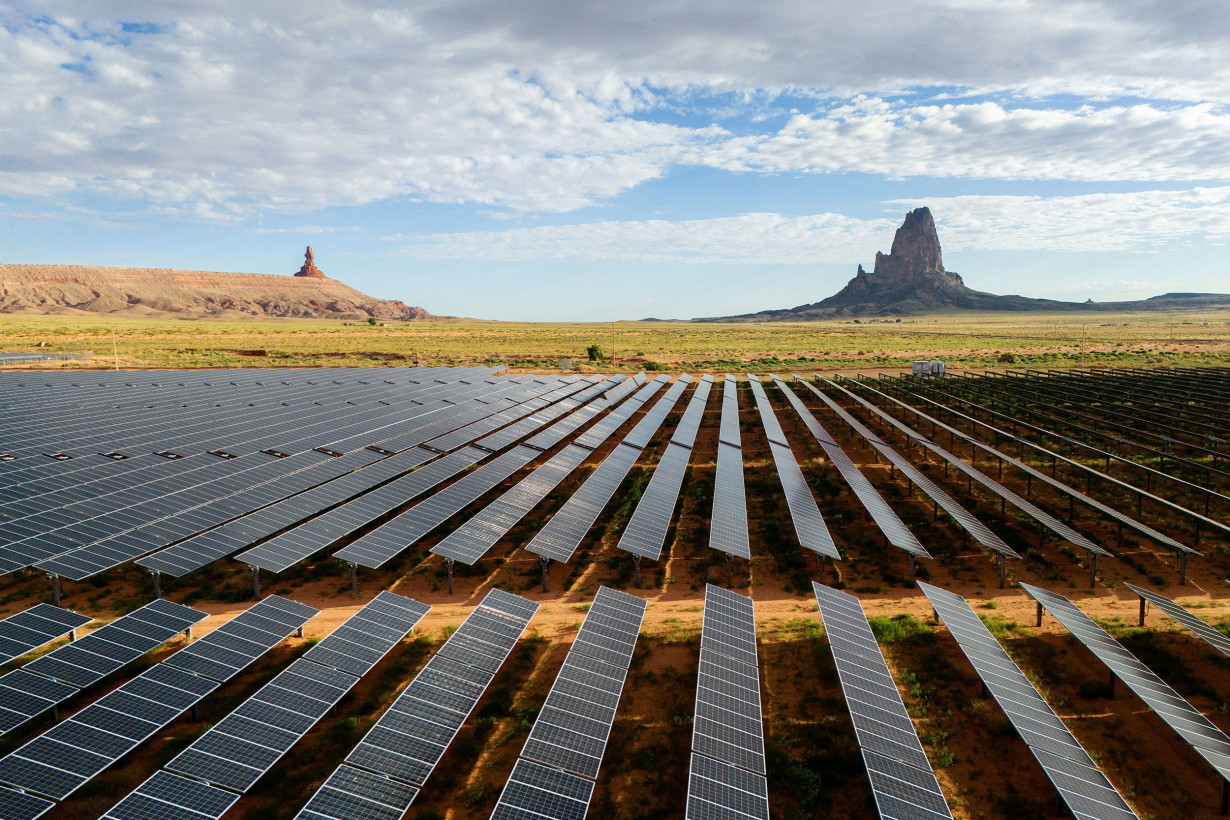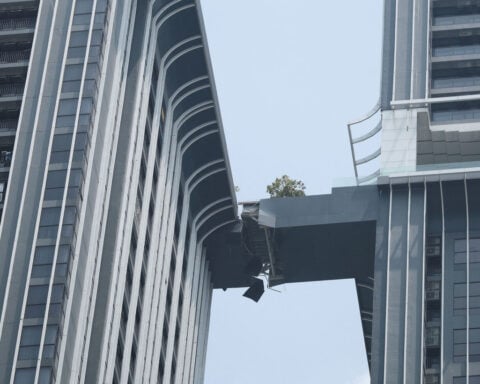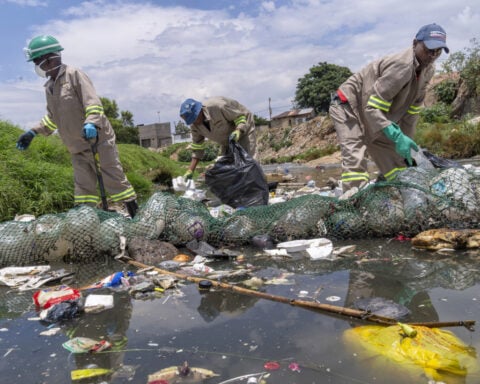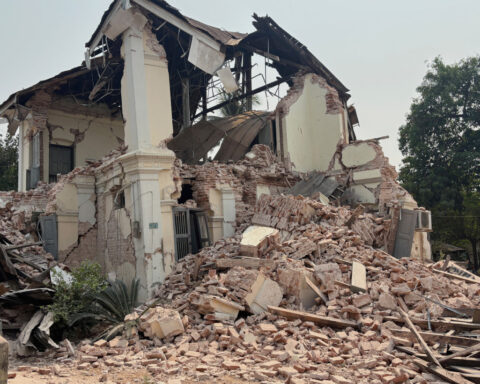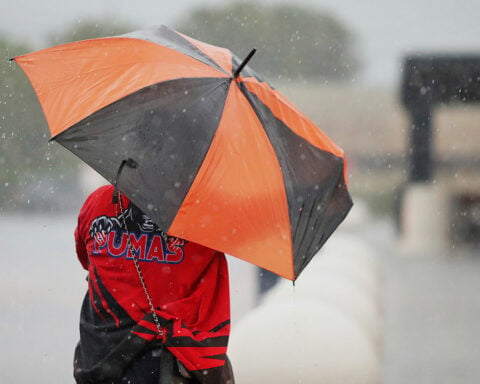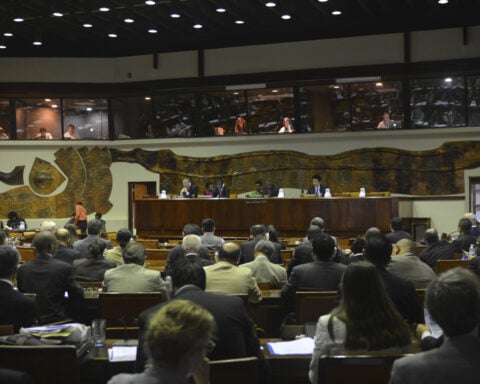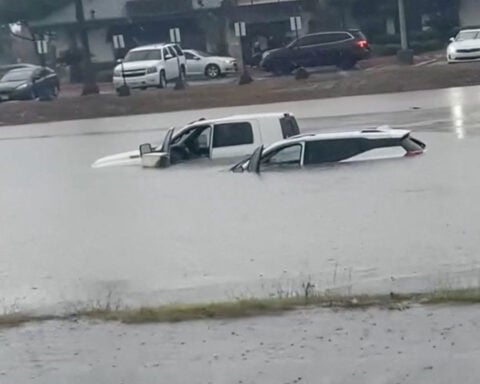(CNN) — Just hours after his swearing-in this week, as a raft of executive orders was presented and signed at the Resolute Desk in the Oval Office, President Donald Trump authorized action to end “radical and wasteful government DEI programs and preferencing.”
Employees in federal positions overseeing Diversity, Equity and Inclusion initiatives were put on paid leave as officials were ordered to “coordinate the termination of all discriminatory programs, including illegal DEI and ‘diversity, equity, inclusion, and accessibility’ (DEIA) mandates, policies, programs, preferences, and activities in the Federal Government, under whatever name they appear.”
Trump’s billionaire adviser Elon Musk has derided DEI initiatives as “racism” and opponents say they take opportunities away from White Americans.
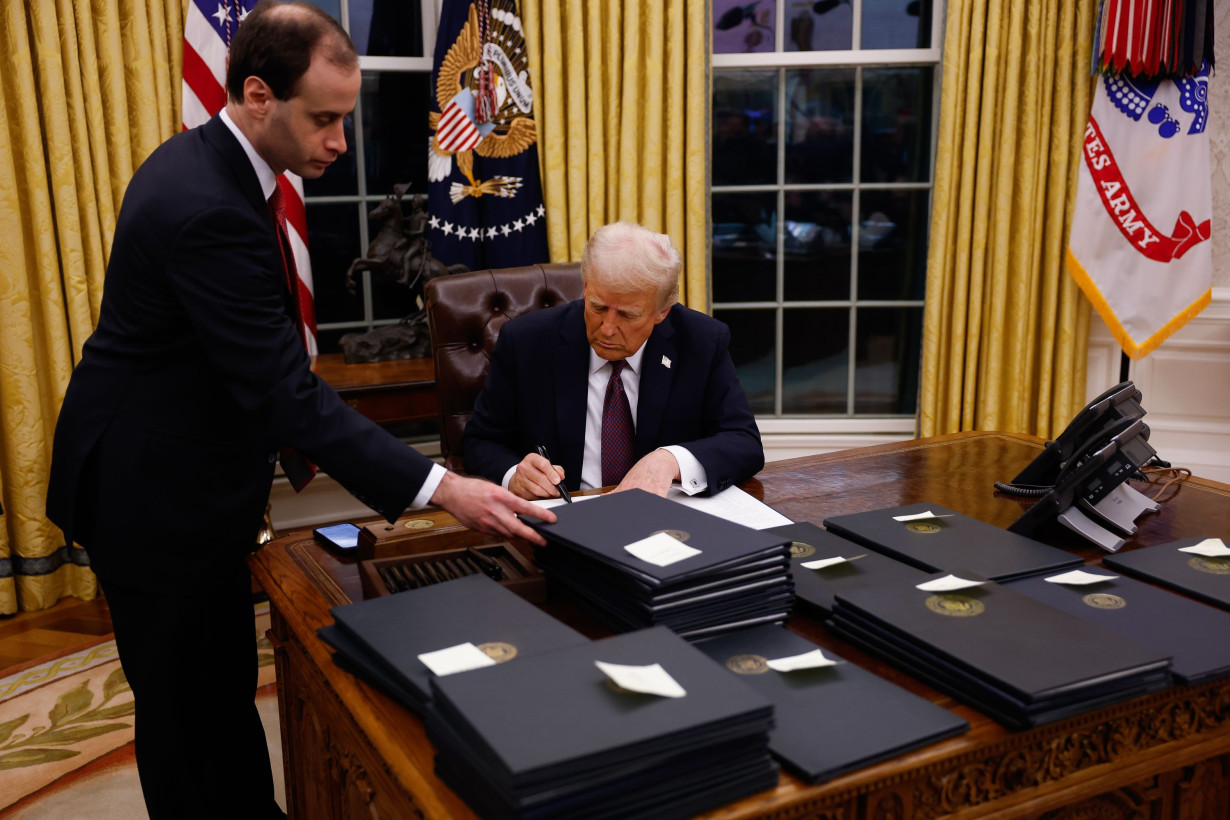
But Trump’s Monday order also took aim at “environmental justice” — eliminating positions and assessing spending on projects, including those aimed at poor, rural communities.
Grants approved and under consideration by the Federal Emergency Management Agency show projects from Alaska to Florida, many targeted at helping small communities. They include:
- $23m for a new wastewater treatment plant in DePue, Illinois, where heavy rains have caused sewage backup in people’s basements;
- $5.4m to upgrade the wastewater facility in Hickory, North Carolina, to protect it from floods — as were seen when Hurricane Helene ravaged mountain communities; and
- $2.5m for a safe room for students and staff in Danville, Arkansas, an economically disadvantaged rural community with no school tornado shelter, in a county where a deadly historic long-track tornado spawned in 2008.
Many of the plans were helped by the Justice40 initiative of former President Joe Biden, which ensured 40% of federal spending on climate and clean energy programs flowed to disadvantaged communities. Billions of dollars, largely through Biden’s Inflation Reduction Act and the Bipartisan Infrastructure Law, have brought solar to tribal lands, paid for electric school buses to replace gas-powered vehicles, and funded local groups to clean up their pollution-burdened communities.
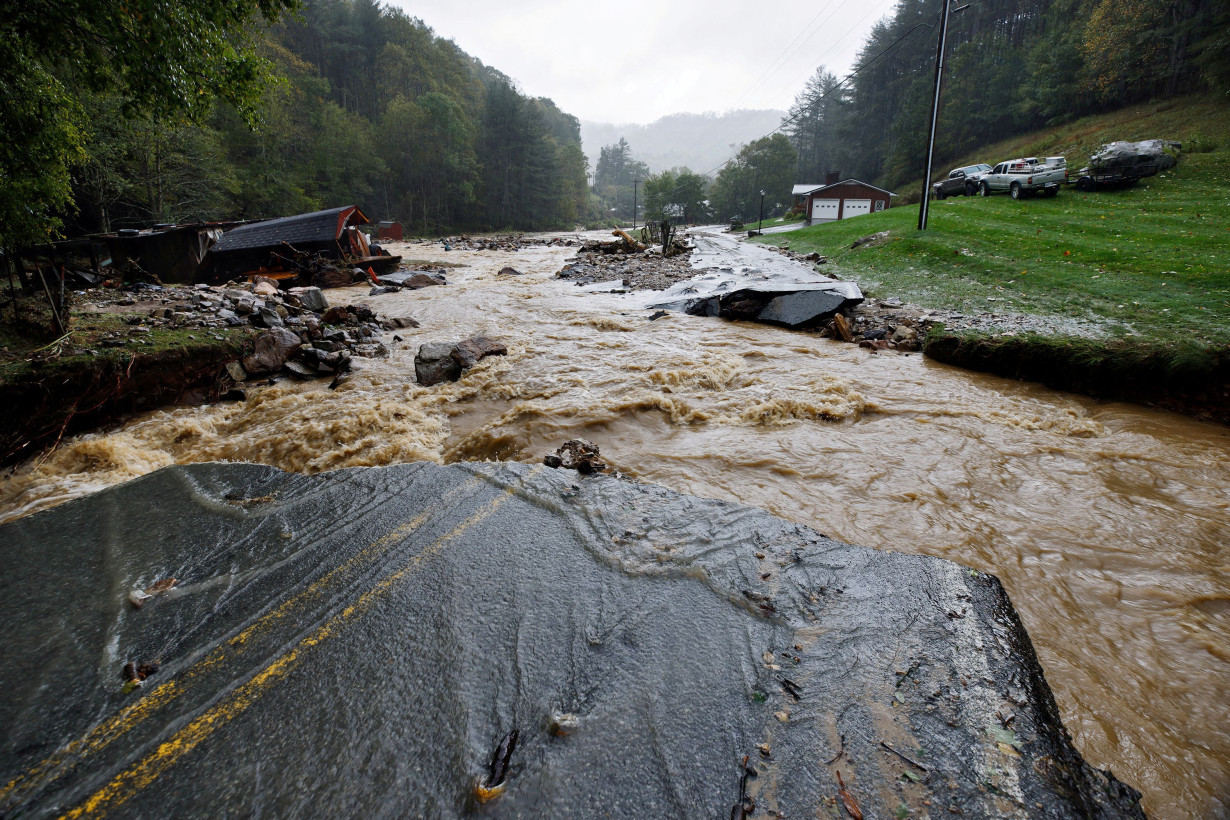
The endangerment of these projects under the new administration was “not unexpected,” said Jalonne White-Newsome, former federal chief environmental justice officer at the White House Council on Environmental Quality — a position created under the Biden administration.
“The revocation of several executive orders over the past couple of days signal what the (Trump) administration says is valuable — and it’s definitely not the American People,” White-Newsome told CNN.
She said federal agencies “did a great job of getting as much money out as possible” before the new administration came into office. The funds and resources that communities already received to address underinvestment, pollution and environmental injustices are safe for now, but funds that still need approval “would be in limbo,” she noted.
What is environmental injustice?
Environmental injustice is a label used to describe the disproportionate harms that low-income communities and communities of color face from both the causes (fossil fuel pollution) and effects (extreme weather) of climate change.
Much of this has been a product of systemic racism.
A 2019 study, for instance, found that redlining — the government-sanctioned effort to segregate communities of color that began in the 1930s — is a strong indicator of which neighborhoods suffer the most from extreme heat. White neighborhoods historically received more community investment in maintaining green spaces that help cool the area, but Black neighborhoods were denied the same resources and were slotted next to polluting industrial infrastructure.
Environmental justice — the effort to address the injustices — should not be conflated with affirmative action or workplace DEI efforts, said Robert Bullard, an environmental justice pioneer who was appointed to the White House Environmental Justice Advisory Council in 2021 during the Biden administration.
“Environmental justice is not affirmative action. It’s not DEI (to have) the right to breathe clean air, drink clean water and the right to have environmental laws to be enforced equally across the board,” Bullard, who is also a professor and founding director of the Bullard Center for Environmental and Climate Justice at Texas Southern University, told CNN.
“That is a basic constitutional right that no president or no Congress can take away,” he noted.
Scientists have been clear: The impacts of the climate crisis on vulnerable and historically marginalized communities are disproportionate. Disadvantaged communities are often located in vulnerable areas and face heightened risks from heatwaves, floods, droughts and storms. In coastal communities like Louisiana and Florida, sea level rise amplifies the risk of displacement and loss of livelihoods, particularly for low-income communities.
“By instituting executive orders that really failed to address these issues, they are, in effect, making systemic racism a national policy,” Peggy Shepard, a former co-chair of the White House Environmental Justice Advisory Council and co-founder and executive director of WE ACT for Environmental Justice, told CNN.
Samantha Montano, disaster researcher at the Massachusetts Maritime Acadamy, said the Federal Emergency Management Agency’s Civil Rights Office could be an easy target, since “FEMA has taken the approach of trying to integrate equity into all their programs, to varying levels of success.”
Equity has been the number one goal of FEMA’s current strategic plan, recognizing that each person has different circumstances and distributes resources and opportunities accordingly to reach the most equitable outcome. This includes people of color, the unhoused, veterans, low-income, renters, rural communities and more.
“We have to fight back against the undermining of our efforts,” Shepard said. “They’re obviously making this systemic racism a cornerstone of the administration and working to eliminate so many of these policies and programs that support a safe and clean environment, so it will have a harmful effect.”
Who benefits?
Bullard, the adviser to the Biden administration, said most government initiatives and projects that focus on equity are “designed to make an imperfect system more perfect, not to discriminate against anybody, but to give opportunity to those who have been denied.”
Equity was deeply entrenched in Biden’s all-of-government approach, raking in investments to mitigate disaster costs from future floods, wildfires and hurricanes as well as clean energy projects that would cut down on planet-warming pollution from fossil fuels in underserved communities.
But Bullard said the money wasn’t going to so-called “DEI” communities of Democrats or people of color. A CNN analysis of data from the nonpartisan Rhodium Group and the Massachusetts Institute of Technology found that a vast majority of the $346-billion-worth of announced investments — nearly 78% — went to Republican congressional districts.
“The way they’re defining it, if (the infrastructure law) was part of a DEI program, they would not even get the money,” Bullard said.
“We want those millions of dollars going into projects in Kentucky, into West Virginia, Louisiana, Texas and Arkansas, into places that are not bastions of the environmental justice and climate movement, but the fact that these are resources available to American cities and counties and municipalities and rural areas, that’s needed,” Bullard added.
“What we’re trying to achieve is to make sure that all Americans have protection against pollution and have a right to have a good quality education and the right to have a good access to health care.”
The-CNN-Wire
™ & © 2025 Cable News Network, Inc., a Warner Bros. Discovery Company. All rights reserved.

 Trump has begun another trade war. Here's a timeline of how we got here
Trump has begun another trade war. Here's a timeline of how we got here
 Canada's leader laments lost friendship with US in town that sheltered stranded Americans after 9/11
Canada's leader laments lost friendship with US in town that sheltered stranded Americans after 9/11
 Chinese EV giant BYD's fourth-quarter profit leaps 73%
Chinese EV giant BYD's fourth-quarter profit leaps 73%
 You're an American in another land? Prepare to talk about the why and how of Trump 2.0
You're an American in another land? Prepare to talk about the why and how of Trump 2.0
 Chalk talk: Star power, top teams and No. 5 seeds headline the women's March Madness Sweet 16
Chalk talk: Star power, top teams and No. 5 seeds headline the women's March Madness Sweet 16
 Purdue returns to Sweet 16 with 76-62 win over McNeese in March Madness
Purdue returns to Sweet 16 with 76-62 win over McNeese in March Madness
